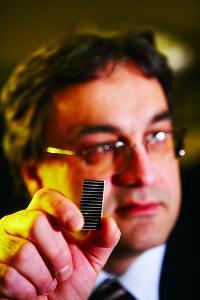Jul 1 2010
A major obstacle has been cleared by researchers from the University of Minnesota. The research team has developed solar cells whose efficiency is two times greater than the current standard levels.

The project was headed by a graduate student, William Tisdale, from the University of Minnesota, and the research team comprised of material science, chemical engineering and chemistry professors, David Norris, Eray Aydil and Xiaoyang Zhu, respectively.
In the current generation of solar cells, sun rays strike the topmost layer of the cells that is usually made of silicon. The disadvantage of using silicon is that it absorbs plenty of solar energy and scatters the energy away as heat. In order to utilize the energy, the hot electrons emitted from the semiconductor are transferred to an electrical circuit before they cool down. An obstacle in this process is that scientists have not been able to extract the electrons from silicon semiconductors. A solution to this problem is that the properties of the semiconductors can be altered by producing them in small pieces of only a few nanometers wide.
In the current project, the researchers found that quantum dots made of lead selenide can be made to yield their hot electrons before they get cooled down. Titanium dioxide, an inexpensive semiconductor material, was also used to pull the electrons.
Aydil said that the research shows that probabilities exist for producing solar cells with efficiency as high as 66%. He added that the research would inspire researchers to produce solar cells based on quantum dots.